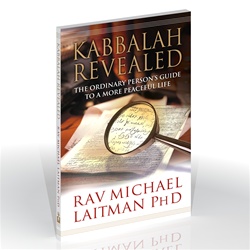
The knowledge that the first Kabbalists acquired did more than help them understand how things worked behind the scenes. With it, they were able to explain the natural phenomena we all encounter. It was only natural, therefore, that they became teachers, and that the knowledge they passed on to us became the basis for both ancient and modern sciences.
Perhaps we think of Kabbalists as secluded people hiding in dim, candle-lit chambers, writing magical scriptures. Well, until the end of the 20th century, Kabbalah was indeed kept secret. The clandestine approach toward Kabbalah evoked numerous tales and legends surrounding its nature. Although most of these tales are false, they still baffle and confuse even the most rigorous thinkers.
But Kabbalah was not always secret. In fact, the first Kabbalists were very open about their knowledge, and at the same time, very much involved with their societies. Often, Kabbalists were their nation’s leaders. Of all these leaders, King David is probably the best known example of a great Kabbalist who was also a great leader.
The involvement of Kabbalists in their societies helped their contemporary scholars develop the basis of what we now know as “Western philosophy,” which later became the basis of modern science. In that regard, here’s what Johannes Reuchlin, a humanist, classics scholar, and expert in ancient languages and traditions, writes in his book, De Arte Cabbalistica: “My teacher, Pythagoras, the father of philosophy, took his teaching from Kabbalists … He was the first to translate the word, Kabbalah, unknown to his contemporaries, to the Greek word philosophy… Kabbalah does not let us live our lives in the dust, but elevates our mind to the height of knowledge.”
Other Routes
But philosophers were not Kabbalists. Because they did not study Kabbalah, they couldn’t fully understand the depth of Kabbalistic knowledge. As a result, knowledge that should have been developed and treated in a very specific way was developed and treated incorrectly. When Kabbalistic knowledge migrated to other parts of the world, where there were no Kabbalists at the time, it also took a different course.
Thus, humanity made a detour. Although Western philosophy incorporated parts of the Kabbalistic knowledge, it ended up taking an entirely different direction. Western philosophy generated sciences that researched our material world, that which we perceive with our five senses. But Kabbalah is a science that studies what happens beyond what our senses perceive. The changed emphasis drove humanity in the opposite direction from the original knowledge that Kabbalists obtained. This change in direction took humanity on a detour whose consequences we will explore in the following chapter.
The Big Questions
Kabbalah became hidden about 2,000 years ago. The reason was simple—there was no demand for it. Since that time, humanity has occupied itself with developing monotheistic religions, and later on, science. Both were created to answer man’s most fundamental questions: “What is our place in the world, in the universe?” “What is the purpose of our existence?” In other words, “Why were we born?”
But today, more than ever before, many people feel that what has worked for 2,000 years no longer meets their needs. The answers provided by religion and science no longer satisfy them. These people are looking elsewhere for answers to the most basic questions about the purpose of life. They turn to Eastern teachings, fortune-telling, magic and mysticism. And some turn to Kabbalah.
Because Kabbalah was formulated to answer these fundamental questions, the answers it provides are directly related to them. By rediscovering ancient answers about the meaning of life, we are literally mending the rupture between humanity and Nature that occurred when we turned away from Kabbalah and toward philosophy.

The above text was taken from the book Kabbalah Revealed: A Guide To A More Peaceful Life by Dr. Michael Laitman with foreword by Prof. Ervin Laszlo. Also available as eBook (PDF, Kindle & ePub formats), and for free PDF download.






